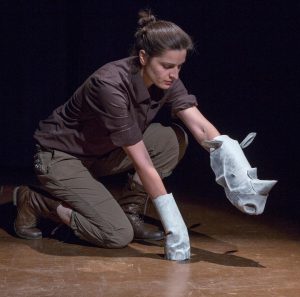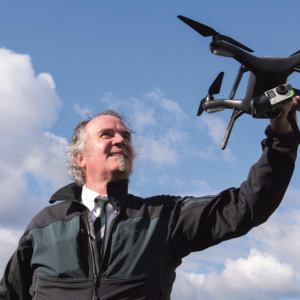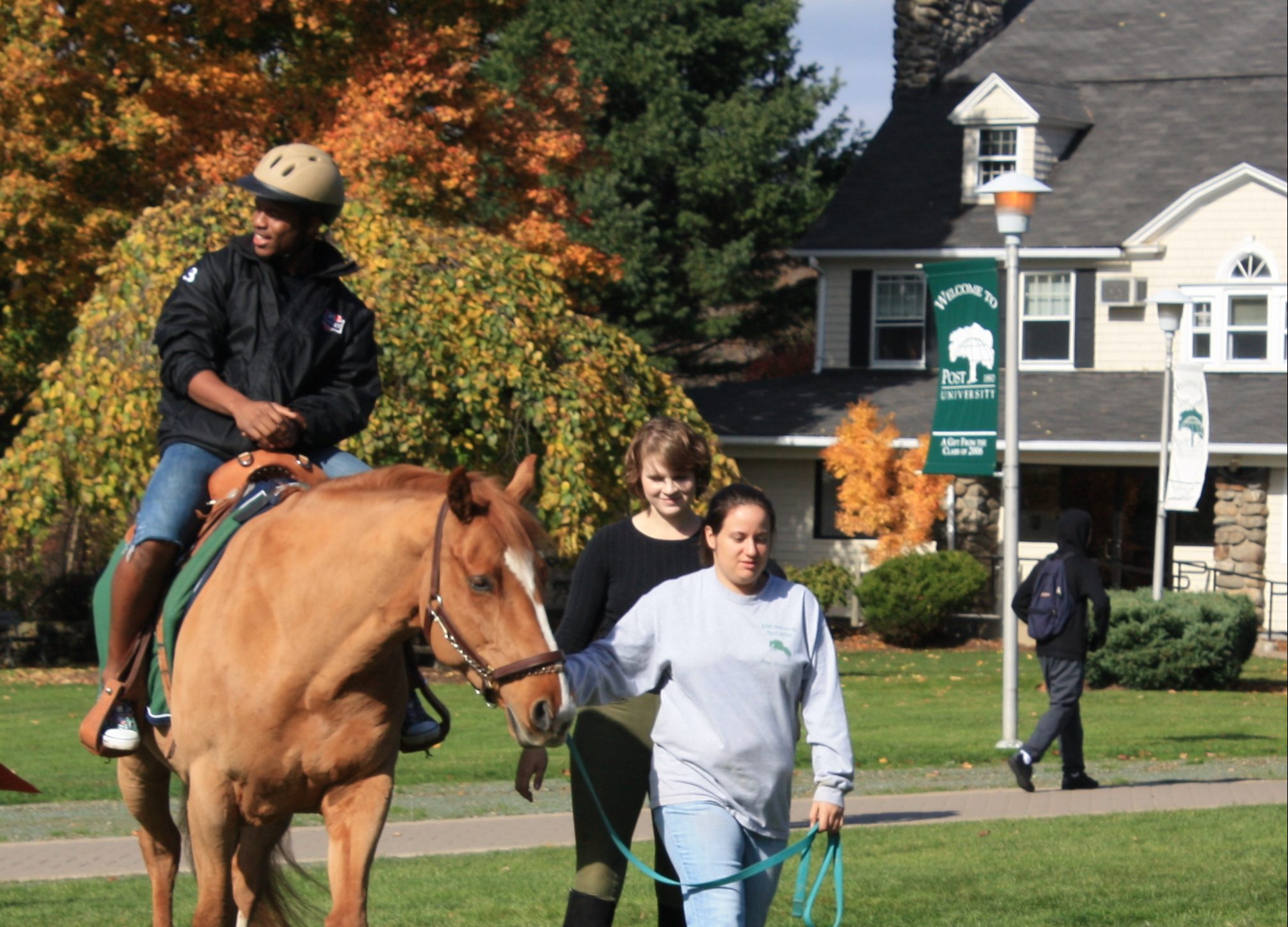Imagine there were no moral or ethical restrictions against making up the name of a college major or minor to put on your resume. Some graduates might like that idea, simply as a way to impress prospective employers.
Let’s say you want to work for a company known for its broad portfolio with more than two dozen individual manufacturing processes and marketing plans. Wouldn’t it be great if you could list a complexity degree under the education banner on your resume? Doesn’t complexity seem to be what a company like that is all about? (If you listed your degree in romance languages, it might not have the same effect.)
In Connecticut, more college students these days don’t have to make anything up. That’s because there are distinctive major and minor courses of study – and the degrees that go with them – that help keep many resumes at the top of the candidate pile. Complexity, a minor at the University of Hartford in West Hartford, happens to be one of them. So are puppetry at the University of Connecticut, drone applications at Southern Connecticut State University in New Haven, and equine studies at Post University in Waterbury.
UHart established the van Rooy Center for Complexity and Conflict Analysis a decade ago, through an endowment from university regent Jean-Pierre van Rooy and his wife, Marie-Claire. It was a topic in which van Rooy was very interested. In 2018, the school began to offer complexity as a minor.
“Our most recent graduate was an economics major who told me that with every job interview he went on, he was asked about his minor in complexity, and every time he explained it, the interviewer said that it was a field of study that would come in very handy for the job,” says Jane Horvath, Ph.D., associate professor of economics and director of the van Rooy Center.
“We have complexity minors who major in computer science, health science, political science, psychology, economics, and much more. Knowing how systems work and how they can be adapted to work better and in a changing environment is an extremely useful skill.”
The official explanation used by the university is that complexity is the study of the behavior of multiple interactions – including how crowds turn into mobs or how birds flock. Horvath’s view of its interdisciplinary value mirrors what professors at other colleges say about their own unique major and minor degrees.
Even puppetry.

“We’ve had majors who have gone on to get teaching degrees and then successfully use puppetry in their classrooms as a teaching aid,” reports Professor Bart Roccoberton, Jr., director of the Puppet Arts program at the University of Connecticut, which offers master of fine arts, master of arts and bachelor of fine arts degrees in puppetry. The program came to life 54 years ago, when a set designer and technical director named Frank Ballard began to teach one puppetry class. It became so popular that the university had to limit the number of students who could enroll.
“We’ve had engineering students, art students, and even future attorneys in our classes,” Roccoberton shares. With his tongue only partially in his cheek (par for the course in puppetry), he says that lawyers often have to manipulate the people they cross-examine – and puppetry is all about manipulation. But that’s more than just a quip, for there’s truth to the sentiment, too: a solid background in the artistic and technical techniques and the emotional and persuasive effects of puppetry have proven as useful for puppeteers as it has for professionals in dozens of other fields.
“Ultimately, when a company interviews someone for a job, what they really care about are the candidate’s skills, relevant work or internship experiences, and referrals from certified professionals,” notes Celia Stangarone, a career coach and transition specialist from Wethersfield who has worked as a consultant for HR departments at many large companies throughout Connecticut. “On the other hand, if a college major or minor that you list on your resume helps spark a discussion about those very skills and experiences, then its distinctiveness can actually be an asset.”
The only time a distinctive major or minor on a resume may not work so well is if no logical connection at all can be made between the major or the minor and the job being sought. That, Stangarone says, would be like looking for a job in amusement park management by talking up your degree in inorganic chemistry.
But there are many courses of study that should be talked up, even when the connection isn’t immediately apparent. Take drone applications, for instance.
Drones, those small machines that dart about in the sky and hover like overgrown hummingbirds, are increasingly used by journalists, farmers, police officers, firefighters, miners, real estate agents, and dozens of other professionals. Drone applications, a minor at SCSU, can be traced to the interests of Scott Graves, an environment, geography, and marine sciences professor at the school who traces his own curiosity to the Deepwater Horizon oil spill in 2010. Although that happened before the drone industry took off, many civilians used makeshift drones (cameras on balloons or kites, for example) to track the extent of the oil spill along the shoreline. Graves started that way too – but soon graduated to real drones.

“I began collaborating with a journalism professor. He was using drones for storytelling and I was using it for mapping. Together we realized that drones were going to change a lot of industries,” Graves says. Students who major in science, engineering, creative arts, journalism, and several other disciplines in SCSU’s College of Arts & Sciences can work toward a drone applications minor. Despite the fact that flying drones often has the aura of amusement, the minor covers such weighty topics as FAA regulations, privacy issues and legal ramifications. It’s certainly not all fun and games.
If an expertise in flying drones can turn an architect into a better urban planner, can knowing how a horse prefers to eat make you a better environmental scientist?
Absolutely – because the more you know about the animal kingdom, the stronger foundation you’ll have with respect to the needs and challenges of effective environmental stewardship. In a program at Post University that goes back to the 1970s, students can earn a bachelor of science in equine studies that covers horse anatomy, physiology, nutrition, wellness, safe barn and stable practices, and historical and contemporary equine business needs and challenges.
“Students enter the program with the idea that they just want to work with horses. Then, once the program is underway, they learn that they are getting a far broader education,” says Abigail Nemec, the equine studies program chair at Post. “Some of our students go into psychology, biology, natural resource management and other fields. Over the course of four years, their ideas evolve about the world. They discover other things that are important to them. The nice thing about equine studies is that it allows them to do something they’re passionate about while also getting an education that will help them in whatever careers they select.”
Post doesn’t own any horses or stables of its own, but leases animals and facilities from other local operations. That, Nemec says, is a win on many levels: students learn about horses in real-life environments, and the barn and stable operators have the benefit of skilled equine care from Post students. “It’s an excellent partnership,” she says.
In Connecticut, students can also major or minor in histology at Goodwin College (that’s the study of the microscopic anatomy of cells and tissues), Caribbean culture at Wesleyan, formal organizations at Trinity, computer game design at Manchester Community College, and dispute resolution at Quinnipiac.
Still, not every student knows what field he or she wants to enter after college graduation – and even drones and horses may not help them decide. That was true for Celia Stangarone, the career coach and transition expert from Wethersfield. She had no idea when she attended UConn what career to pursue. Her degree was in general studies and she figured it out after she graduated. It’s who you are on the inside that’s important, she says, not necessarily what ends up listed on your resume as a major or minor degree.
Nevertheless, several good things happen when students pick distinctive majors and minors. For one thing, it often opens doors. For another, students connect with equally unique classmates who may help their careers later on.
“I tell my puppetry students that their first networking meeting happens right here in class,” says UConn’s Roccoberton. His department’s puppetry graduates have been out in the field for decades now, involved with the Muppets, “Little Shop of Horrors,” “The Wizard of Oz,” “Avenue Q,” television shows such as “Between the Lions,” and in classrooms, museums and theaters all over the world. Working for four years toward a degree in puppetry is a great thing, Roccoberton says – but having 50 years’ worth of successful alumni who are eager to help the younger generation is an even greater thing. Sometimes it makes life much less complex.







More Stories
Autism Families CONNECTicut Steps Up for the Local Community Building a Nonprofit From the Ground Up
Hospital for Special Care’s Ivan Lendl Adaptive Sports Camp
Special Olympics Connecticut: Supporting and Inspiring a Special Community